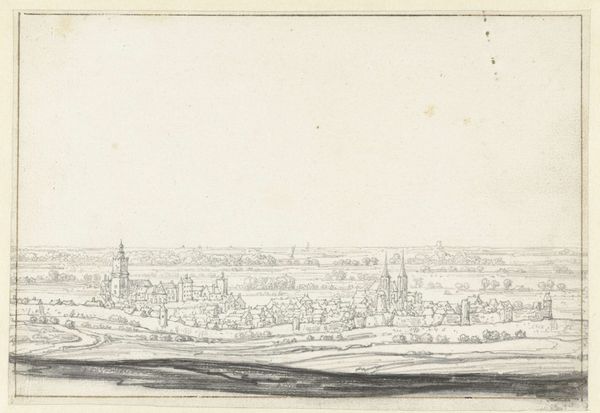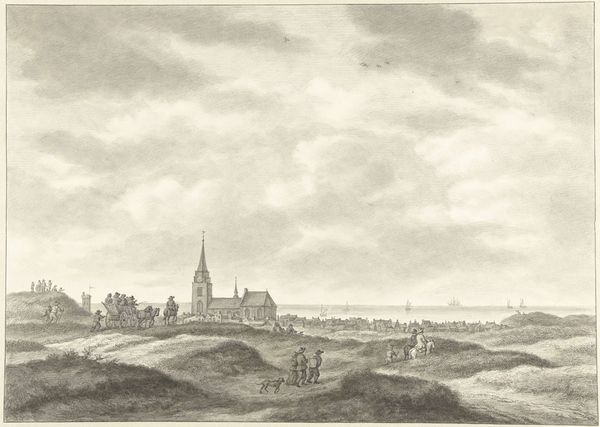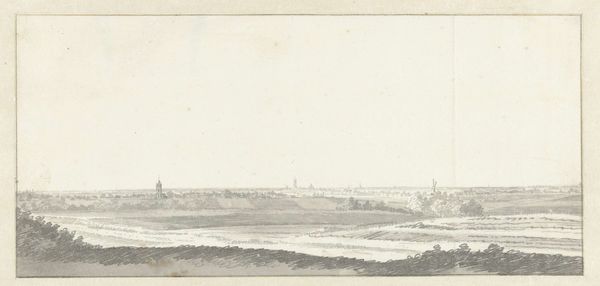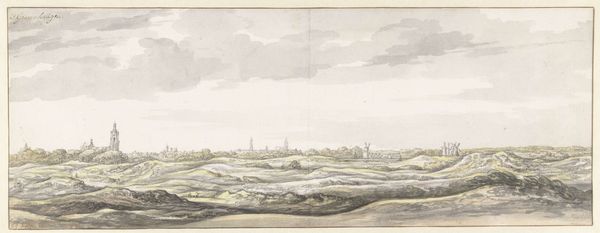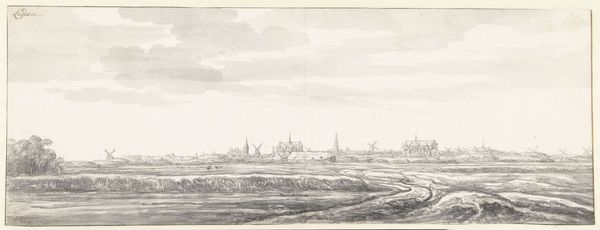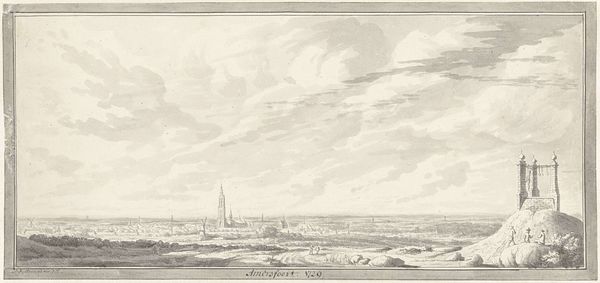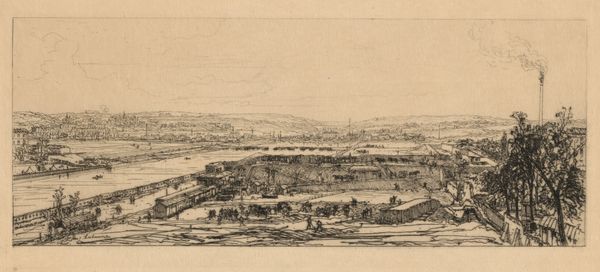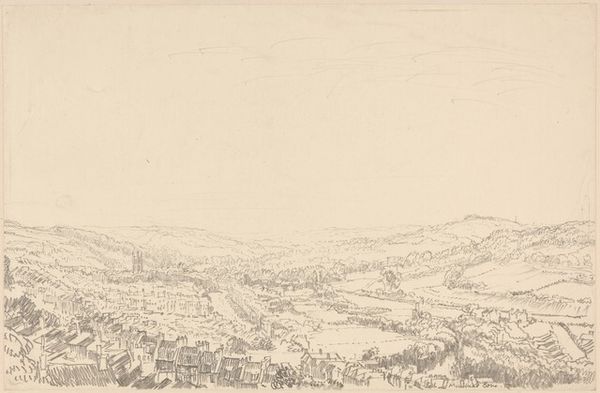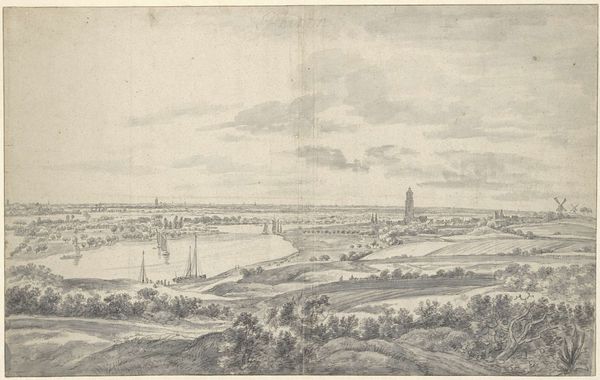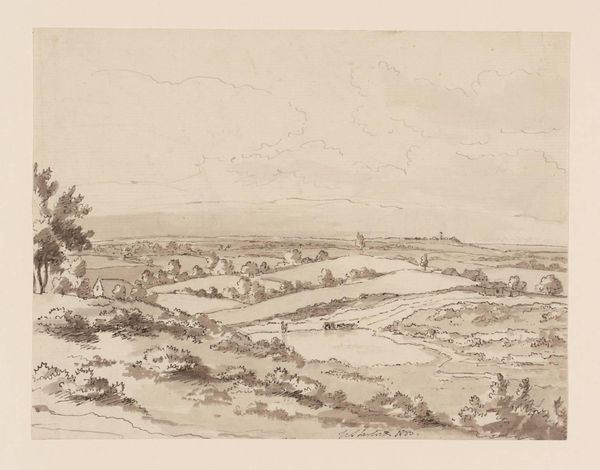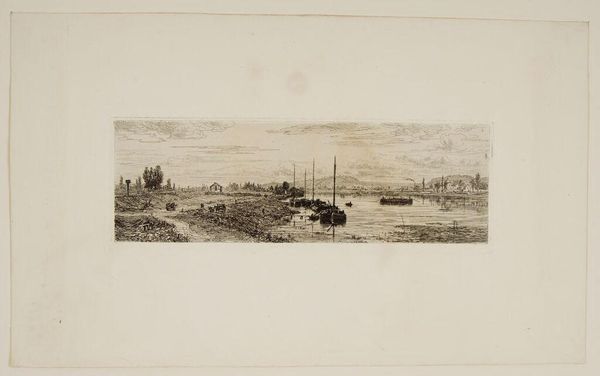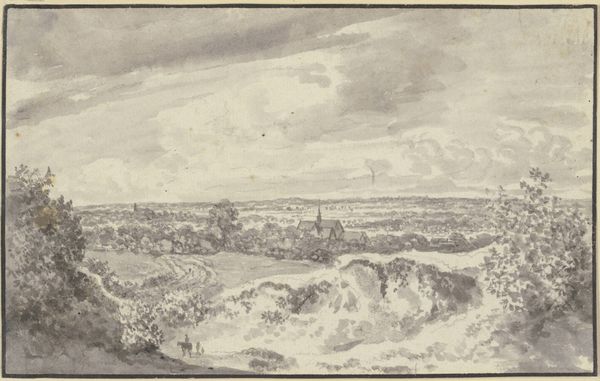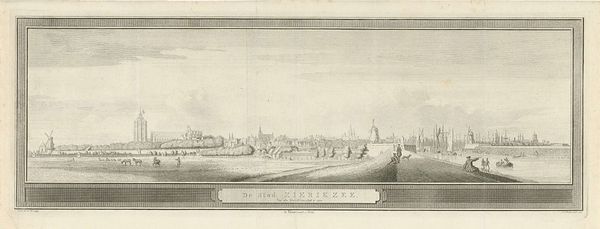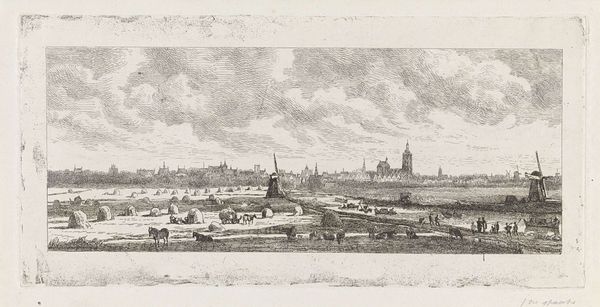
drawing, pencil
#
drawing
#
dutch-golden-age
#
landscape
#
pencil
#
cityscape
Copyright: Public Domain: Artvee
Curator: The vista before us, titled *View of the Rhine River Valley*, was captured by Aelbert Cuyp between 1651 and 1652, executed delicately in pencil. Editor: It's evocative, almost dreamlike. The way Cuyp uses light and shadow, creating an ethereal atmosphere. Curator: The tonal range certainly guides our eyes across the composition, moving from the foreground figures towards the detailed cityscape in the distance. It’s carefully structured. The towers punctuate the skyline with intention, wouldn’t you agree? Editor: Intention, certainly, but also a document of a moment. Look at the visible strokes, the apparent haste, which suggest immediacy of the material record and conditions during its creation. Those strokes indicate Cuyp rapidly captured the image. Did the laborers of the surrounding community also stop what they were doing to gaze in the distance? Curator: It would appear that Cuyp valued visual accuracy, observing details of built form and geographical features, but the drawing seems primarily to present a study in light. Note the perspective: The diminishment of size indicates spatial recession, producing a view from a slightly elevated position—giving a compositional foundation to consider all of the buildings equally, so nothing overlaps or appears confusing. Editor: Yes, I think about where the material comes from. From what mine were the materials extracted? What conditions did those workers endure? We can trace these histories back to the paper and the drawing, if we care to investigate them. Curator: And that is the power of this image—this simple pencil drawing allows us access to the Dutch Golden Age. Its understated presentation opens up volumes. Editor: Ultimately, by thinking of material, we can connect artistic decisions, labor conditions, and political factors across eras. Thank you for focusing our attention on those artistic decisions today.
Comments
No comments
Be the first to comment and join the conversation on the ultimate creative platform.
